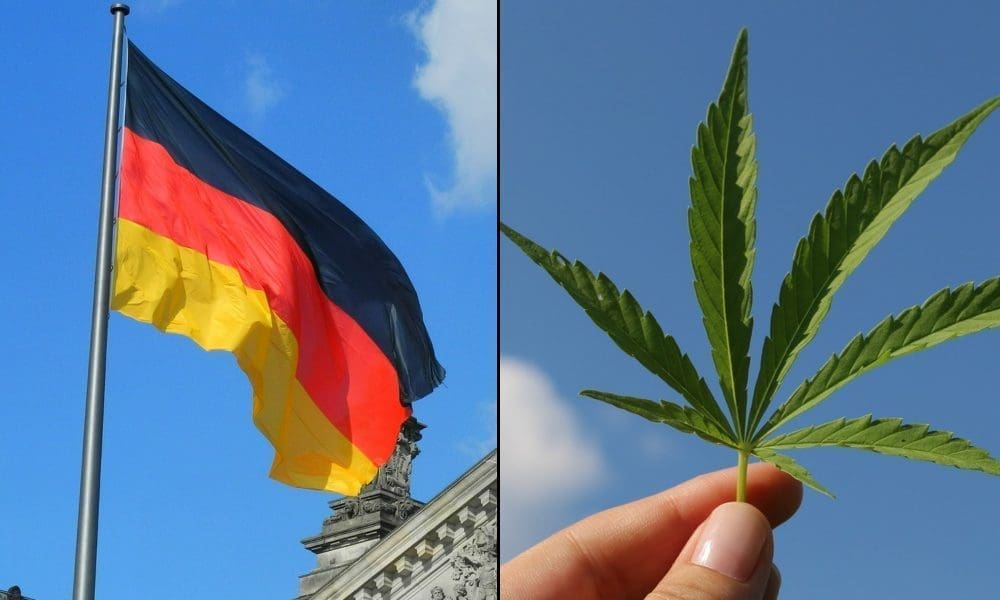German authorities approve country’s first marijuana club since legalization came into force

Just one week after the law granting such permits came into force, Germany’s first marijuana social club was officially approved.
Lower Saxony’s Agriculture Minister Miriam Staudte announced that her office granted the Ganderkesee Social Club a permit on Monday, allowing the cooperative to begin growing marijuana for its members – the latest development in the implementation of Germany’s legalization law.
More permits are expected to follow across the country in the coming weeks, while individual federal states such as Bavaria have signaled that they will make use of their power to impose restrictions and ensure that permits are not issued until autumn at the earliest.
Staudte, for her part, said that this first approval represents a “historic step for consumer protection and controlled cannabis cultivation in Germany,” according to a translation.
Since April, the possession and cultivation of marijuana for personal use has been legal for adults in Germany, but so far there is no other way to obtain cannabis legally.
The number of members in each club will be limited to 500, and the sale of a maximum of 50 grams of marijuana per person per month will be capped at 50 grams.
I am also pleased that Deputy Mayor Cord Schütte was there, as was Chamber President of Garmissen.
— Miriam Staudte (@MiriamStaudte) July 8, 2024
The Cannabis Social Clubs are “an important part of the fight against the black market,” said SPD MP Carmen Wegge last week, according to a translation. “Even if you don’t have a particularly green thumb, a CSC is certainly a good alternative.”
Meanwhile, advocates and stakeholders are still waiting for the government’s plan for the second pillar of the law, which would enable a more comprehensive commercial sales model.
Last month, German lawmakers also passed a series of amendments to the law legalizing marijuana, including restrictions on driving while under the influence of alcohol and giving states more power to restrict cannabis cultivation within their borders.
The changes were the result of an earlier agreement between the federal government and lawmakers that was reached to avoid a months-long delay in implementing the legalization law.
One of the changes gives states more flexibility to set limits on cultivation in cooperatives, which can now distribute cannabis to their members. Regional governments can limit the size of cooperatives’ cultivation areas.
Another measure passed by federal lawmakers last month sets a THC limit for driving under the influence. The law – which has proven more controversial because there is no scientific evidence to support the effectiveness of such measures – would require drivers to be considered impaired if they have more than 3.5 ng/ml of THC in their blood. The amendment also prohibits driving if a person has consumed both marijuana and alcohol, regardless of the amount.
Meanwhile, Health Minister Karl Lauterbach, who led the government’s efforts to legalize cannabis, told members of the Bundestag in December that “we are currently reviewing the commercial sales plan as part of the second pillar.” But with legalization in place, pressure has increased to speed up the process.
—
Marijuana Moment is tracking more than 1,500 cannabis, psychedelics and drug bills in state legislatures and Congress this year. Patreon supporters who pledge at least $25/month get access to our interactive maps, charts and hearing calendar so they don’t miss any developments.![]()
Learn more about our marijuana bill tracker and become a supporter on Patreon to get access.
—
The Federal Council, which represents the individual federal states, had already tried to block the legalization proposal that has now been passed last September, but ultimately failed.
Although the German federal cabinet adopted the first framework for a legalization measure at the end of 2022, the government also stated that it wanted to seek the approval of the EU to ensure that implementing the reform does not violate its international obligations.
Authorities have taken a first step toward legalization in 2022, launching a series of hearings to help advance legislation to end prohibition in the country.
Last November, government officials from several countries, including the United States, also met in Germany to discuss international marijuana policy issues as the host country works toward legalization.
A group of German politicians and the Narcotics Commissioner Burkhard Blienert independently visited the United States in 2022 and toured Californian cannabis companies to learn about their country’s approach to legalization.
The visit came after senior politicians from Germany, Luxembourg, Malta and the Netherlands held the first meeting of its kind to discuss plans and challenges related to the legalization of marijuana for recreational use.
Coalition leaders said in 2021 that they had reached an agreement to lift the cannabis ban and establish regulations for a legal industry, and that they would unveil specific details of the plan for the first time in 2022.
A new international poll from 2022 found that a majority in several major European countries, including Germany, are in favor of legalization.
Meanwhile, the United Nations (UN) drug control body recently reiterated that it considers the legalization of marijuana for non-medical or scientific purposes a violation of international treaties, but also expressed its appreciation for the German government’s scaling back its cannabis plan ahead of the recent vote.
North Dakota Marijuana Campaign collects more than enough signatures to put legalization on the November ballot, activists say




